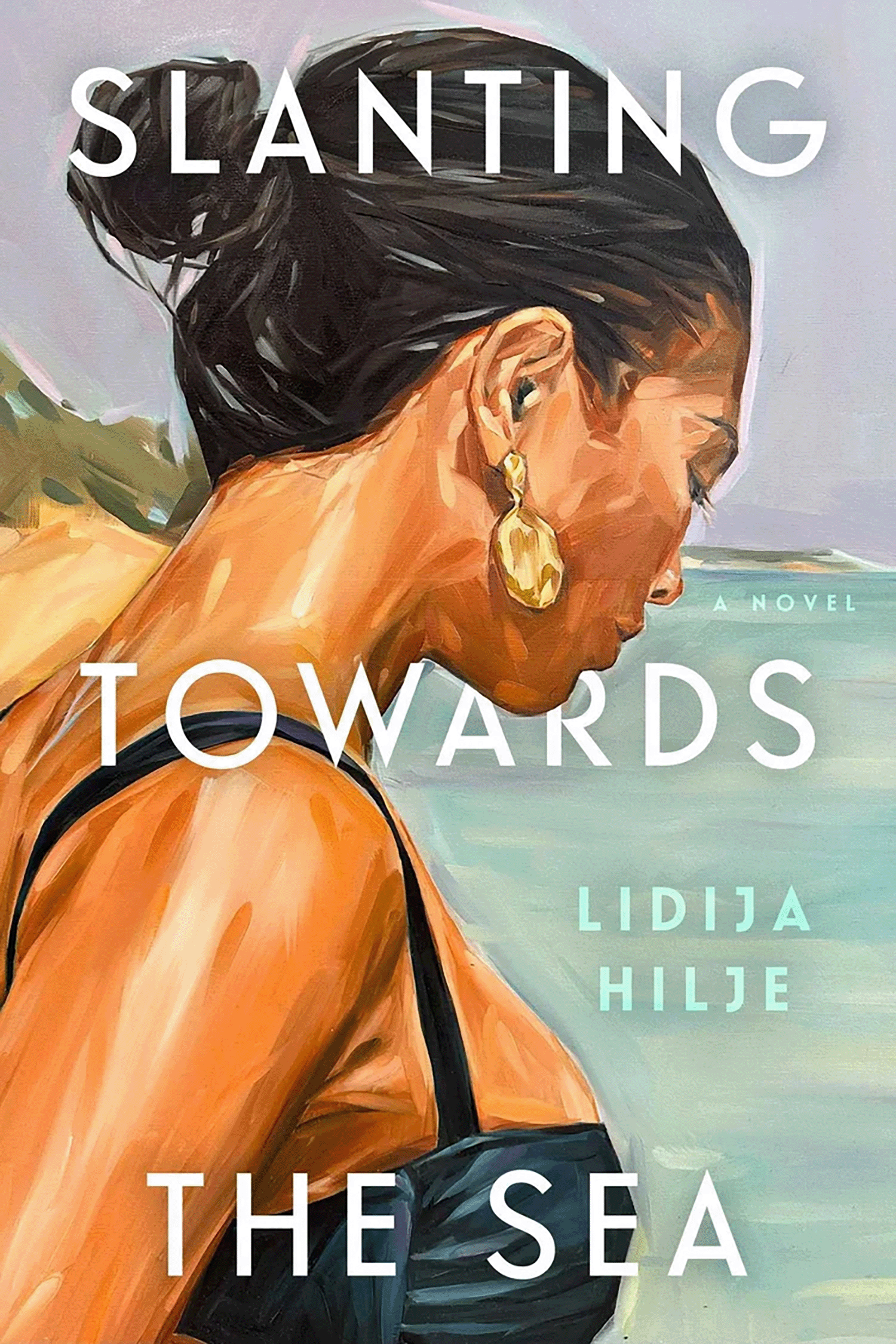A Million Tiny Miracles in Slanting Towards the Sea by Lidija Hilje
Cover of US Edition
Some books you finish and set aside. Others you immediately start over, unable to leave their world behind. Croatian author Lidija Hilje’s debut novel, Slanting Towards the Sea, is definitely one of the latter. Released last month by Simon and Schuster, it deserves to be part of your reading life.
Larry and I lived off-and-on for 2 years in a small hundred-year-old cottage on the beach. My husband loves to tell people that if you set a marble on the wood floor of our living room, it rolled faster and faster towards the ocean. Our cottage was literally Slanting Towards the Sea taking with us with it.
This layered and all-too-human story is told by Ivona, a middle-aged woman who left her husband and her homeland for reasons that slowly unfold. The book has it all. There’s mystery, “Why, really, did Ivona leave her beloved husband?” There’s romance, “Will she get together with the mysterious Asier, the ugly-handsome globe-trotter?” There’s family dynamics, “Will she succeed in accomplishing her father’s dream?” Theses could be written on the metaphor of the olive trees and grounding it all runs the author’s deep love for her country, warts and all.
In her marvelous introduction to the book, Claire Lombardo of ElectricLit describes it as “propulsive, empathetic, meditative without ever feeling ponderous, and linguistically beautiful.” Yes to all of that. When I finished reading it –without a thought - I turned to the first page to revisit the landscapes and characters I had come to know and love.
How often does that happen?
Hilje’s language is, indeed, beautiful; enriched by the fact that she is writing in her second tongue. Apart from some quaintness, it offers some of the most sensuous and surprising similes you’ve ever seen. (How’s that for a little sibilance?) Consider these:
He took to it like a lung to breath (p. 5)
Vlaho’s stare trailing me like an echo following a sound. (p. 12)
My world slanted into his direction as if he himself were the sea. (p. 26)
Hilje’s descriptions of emotions are captivating. Here are few:
The pain throbbed inside him, I could sense it, like distant rumbles of a storm on the horizon. (p. 48)
It’s like opening an overcrowded beehive in my chest, this feeling—the bees rushing out to roam free until all there’s left is peace. (p. 52)
Her eyes carried a note of something that made my navel pull inward (p. 101)
And then there’s sex. Hilje’s description of love-making and emotional pain take the reader right where she wants to be:
[He] is inside me and all around me, and that’s all that matters. . . the only space I wanted to exist in. Pain, lodged in the depths of me, starts evaporating. Slowly, like seawater in the sun, leaving only salt crystals behind. [p. 242]
The touch lingers after it’s gone. (p. 269)
This book works its magic quietly, pulling the reader irresistibly into its depths one gorgeous sentence at a time. By the final page, you realize you’ve been witness to something rare—a debut that transforms ordinary moments of love, loss, and longing into a million tiny miracles.
Lidija Hilje
You can find Slanting Towards the Sea at The King’s English Bookshop or on Amazon.


